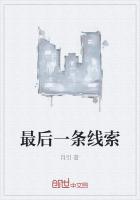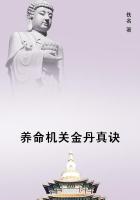With such ugly facts staring them in the face, and with the habit of looking at things from the moral point of view, these men could understand how hollow and false were the soothing or triumphant phrases of official optimism. They did not, indeed, dare to express their indignation publicly, for the authorities would allow no public expression of dissatisfaction with the existing state of things, but they disseminated their ideas among their friends and acquaintances by means of conversation and manuscript literature, and some of them, as university professors and writers in the periodical Press, contrived to awaken in a certain section of the young generation an ardent enthusiasm for enlightenment and progress, and a vague hope that a brighter day was about to dawn.
Not a few sympathised with these new conceptions and aspirations, but the great majority of the nobles regarded them--especially after the French Revolution of 1848--as revolutionary and dangerous. Thus the educated classes became divided into two sections, which have sometimes been called the Liberals and the Conservatives, but which might be more properly designated the men with aspirations and the apathetically contented. These latter doubtless felt occasionally the irksomeness of the existing system, but they had always one consolation--if they were oppressed at home they were feared abroad. The Tsar was at least a thorough soldier, possessing an enormous and well-equipped army by which he might at any moment impose his will on Europe. Ever since the glorious days of 1812, when Napoleon was forced to make an ignominious retreat from the ruins of Moscow, the belief that the Russian soldiers were superior to all others, and that the Russian army was invincible, had become an article of the popular creed;
and the respect which the voice of Nicholas commanded in Western Europe seemed to prove that the fact was admitted by foreign nations. In these and similar considerations the apathetically contented found a justification for their lethargy.
When it became evident that Russia was about to engage in a trial of strength with the Western Powers, this optimism became general.
"The heavy burdens," it was said, "which the people have had to bear were necessary to make Russia the first military Power in Europe, and now the nation will reap the fruits of its long-
suffering and patient resignation. The West will learn that her boasted liberty and liberal institutions are of little service in the hour of danger, and the Russians who admire such institutions will be constrained to admit that a strong, all-directing autocracy is the only means of preserving national greatness." As the patriotic fervour and military enthusiasm increased, nothing was heard but praises of Nicholas and his system. The war was regarded by many as a kind of crusade--even the Emperor spoke about the defence of "the native soil and the holy faith"--and the most exaggerated expectations were entertained of its results. The old Eastern Question was at last to be solved in accordance with Russian aspirations, and Nicholas was about to realise Catherine II.'s grand scheme of driving the Turks out of Europe. The date at which the troops would arrive at Constantinople was actively discussed, and a Slavophil poet called on the Emperor to lie down in Constantinople, and rise up as Tsar of a Panslavonic Empire.
Some enthusiasts even expected the speedy liberation of Jerusalem from the power of the Infidel. To the enemy, who might possibly hinder the accomplishment of these schemes, very little attention was paid. "We have only to throw our hats at them!" (Shapkami zakidaem) became a favourite expression.
There were, however, a few men in whom the prospect of the coming struggle awoke very different thoughts and feelings. They could not share the sanguine expectations of those who were confident of success. "What preparations have we made," they asked, "for the struggle with civilisation, which now sends its forces against us?
With all our vast territory and countless population we are incapable of coping with it. When we talk of the glorious campaign against Napoleon, we forget that since that time Europe has been steadily advancing on the road of progress while we have been standing still. We march not to victory, but to defeat, and the only grain of consolation which we have is that Russia will learn by experience a lesson that will be of use to her in the future."*
These are the words of Granovski.
These prophets of evil found, of course, few disciples, and were generally regarded as unworthy sons of the Fatherland--almost as traitors to their country. But their predictions were confirmed by events. The Allies were victorious in the Crimea, and even the despised Turks made a successful stand on the line of the Danube.
In spite of the efforts of the Government to suppress all unpleasant intelligence, it soon became known that the military organisation was little, if at all, better than the civil administration--that the individual bravery of soldiers and officers was neutralised by the incapacity of the generals, the venality of the officials, and the shameless peculation of the commissariat department. The Emperor, it was said, had drilled out of the officers all energy, individuality, and moral force. Almost the only men who showed judgment, decision, and energy were the officers of the Black Sea fleet, which had been less subjected to the prevailing system. As the struggle went on, it became evident how weak the country really was--how deficient in the resources necessary to sustain a prolonged conflict. "Another year of war,"















